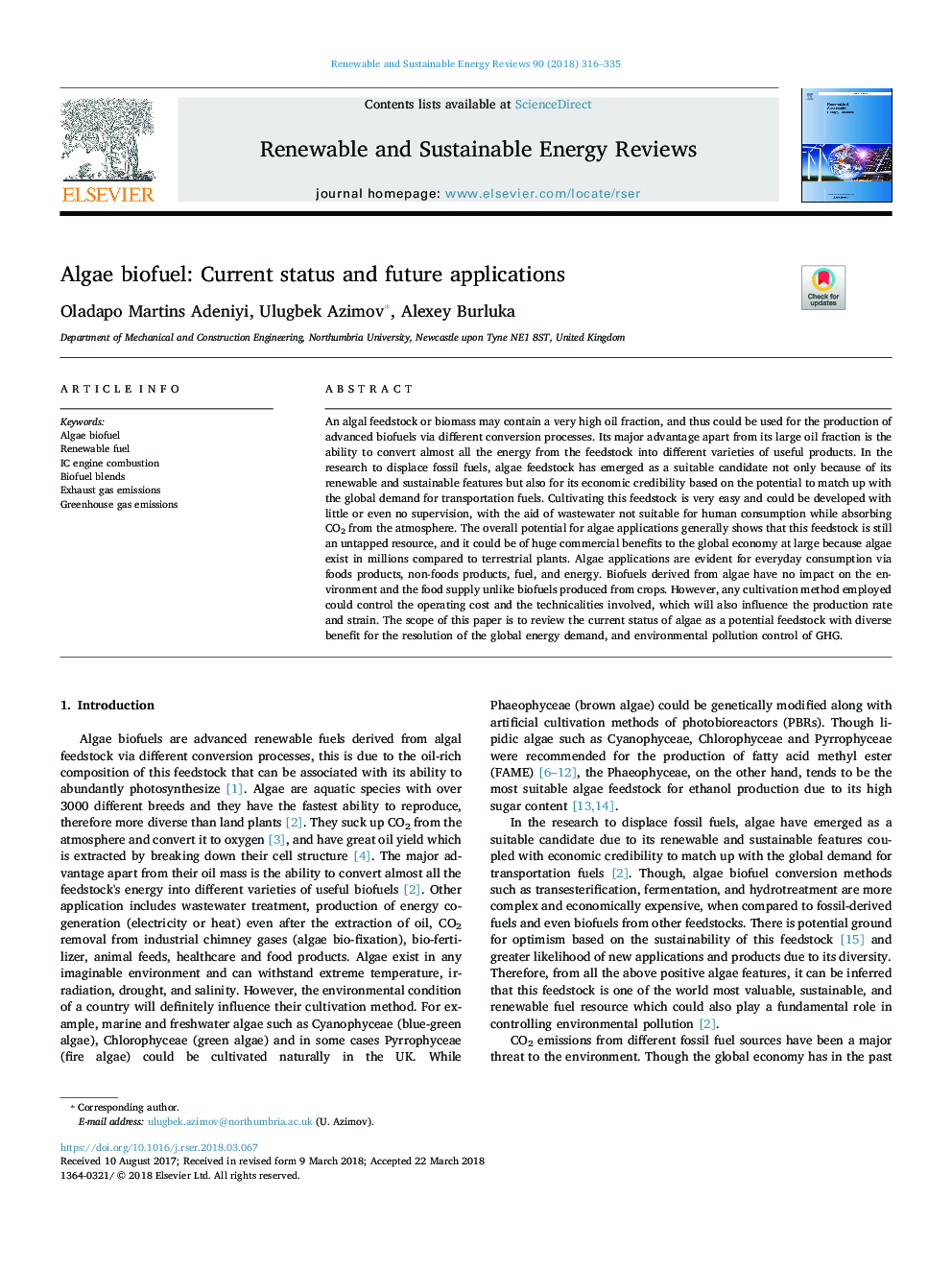| Article ID | Journal | Published Year | Pages | File Type |
|---|---|---|---|---|
| 8111250 | Renewable and Sustainable Energy Reviews | 2018 | 20 Pages |
Abstract
An algal feedstock or biomass may contain a very high oil fraction, and thus could be used for the production of advanced biofuels via different conversion processes. Its major advantage apart from its large oil fraction is the ability to convert almost all the energy from the feedstock into different varieties of useful products. In the research to displace fossil fuels, algae feedstock has emerged as a suitable candidate not only because of its renewable and sustainable features but also for its economic credibility based on the potential to match up with the global demand for transportation fuels. Cultivating this feedstock is very easy and could be developed with little or even no supervision, with the aid of wastewater not suitable for human consumption while absorbing CO2 from the atmosphere. The overall potential for algae applications generally shows that this feedstock is still an untapped resource, and it could be of huge commercial benefits to the global economy at large because algae exist in millions compared to terrestrial plants. Algae applications are evident for everyday consumption via foods products, non-foods products, fuel, and energy. Biofuels derived from algae have no impact on the environment and the food supply unlike biofuels produced from crops. However, any cultivation method employed could control the operating cost and the technicalities involved, which will also influence the production rate and strain. The scope of this paper is to review the current status of algae as a potential feedstock with diverse benefit for the resolution of the global energy demand, and environmental pollution control of GHG.
Related Topics
Physical Sciences and Engineering
Energy
Renewable Energy, Sustainability and the Environment
Authors
Oladapo Martins Adeniyi, Ulugbek Azimov, Alexey Burluka,
